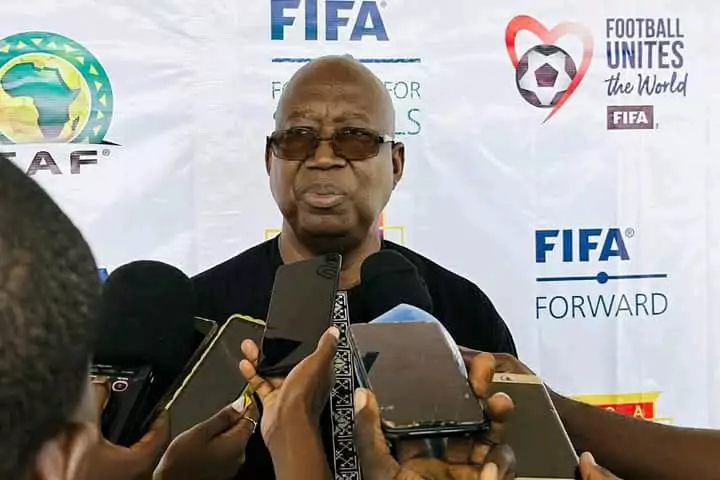Central African Football Federation rejects ministerial suspension as “null and void”

The Central African Republic’s Football Federation (FCF) has firmly rejected the recent suspension of several of its top officials, including President Célestin Yanindji, calling the government’s move illegitimate and a threat to the future of the sport in the country.
In a sharply worded statement released on June 10, the Executive Committee of the FCF denounced the six-month suspensions issued by the Minister of Sports, describing the decision as having been made “in a climate of confusion” and founded on “fanciful” reasoning.
The federation accused the ministry of interfering in the internal governance of what it described as a legally autonomous and democratically constituted sports body.
“The reasons given are fanciful,” the FCF said in its statement, insisting that its legitimacy is drawn not from government endorsement but from the recognized structures of international football governance.
The federation expressed concern that the move could trigger serious consequences at the international level.
It warned that FIFA, which typically enforces strict regulations against political interference in football federations, could take action — possibly including a suspension that would bar Central African teams from participating in key upcoming competitions.
Among the events at risk are the final stages of the U17 and U20 Africa Cup of Nations, the 2025 African Nations Championship (CHAN), and various CAF interclub tournaments.
The FCF also noted that ongoing football development projects — including plans to construct much-needed sports infrastructure — could be jeopardized.
The Executive Committee made it clear that it views the suspensions as an attempt to provoke instability within the national football structure.
It also rejected the sports ministry’s authority to take disciplinary action against elected federation officials, declaring that the decision “has no legal foundation.”
The FCF vowed to pursue “all available legal remedies” in response to what it described as an act of harassment against its leadership.
The dispute now signals the beginning of a serious institutional conflict, with both the Ministry of Sports and the FCF standing firm on opposing sides.
As the situation escalates, attention will likely turn to regional and international governing bodies for mediation.
But for now, the Central African Republic finds itself facing a deepening rift within its football leadership at a critical moment for the sport’s development in the country.




